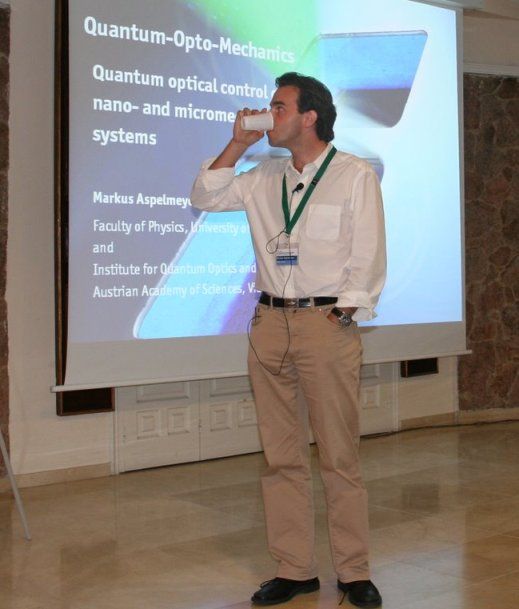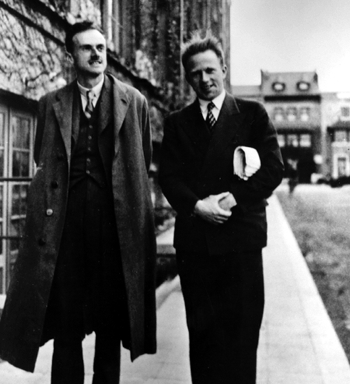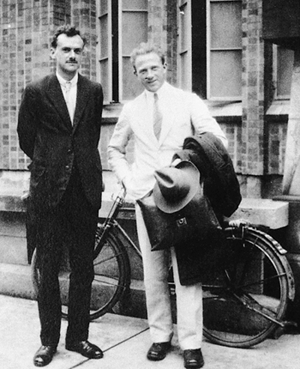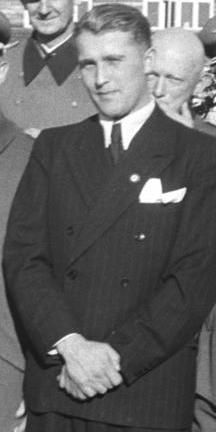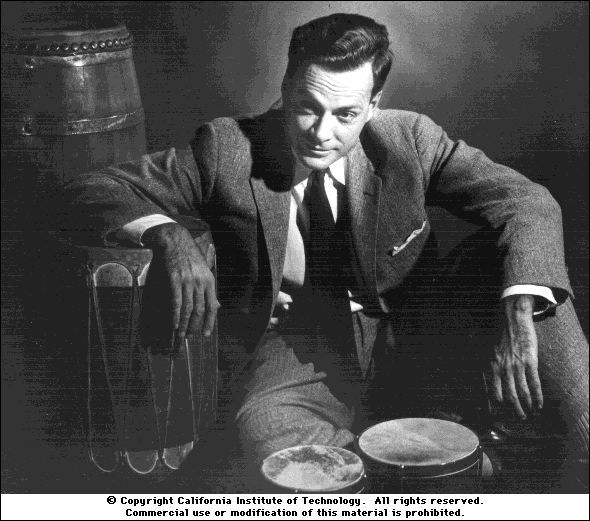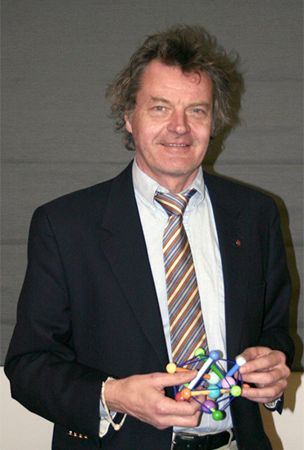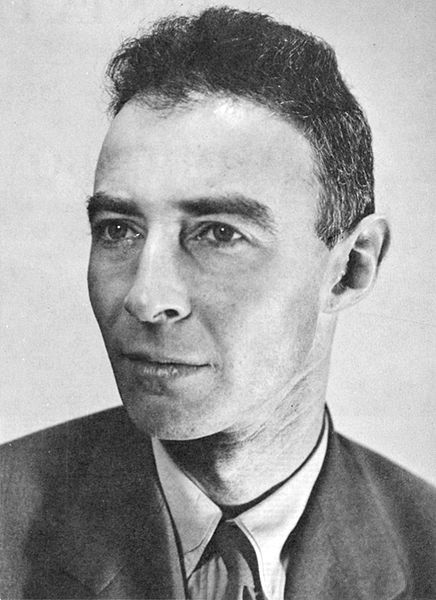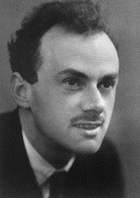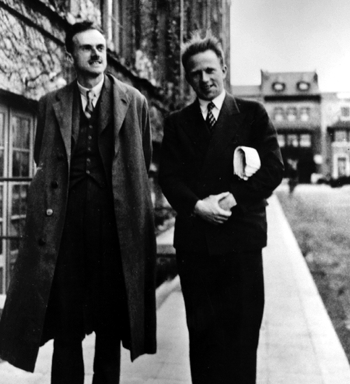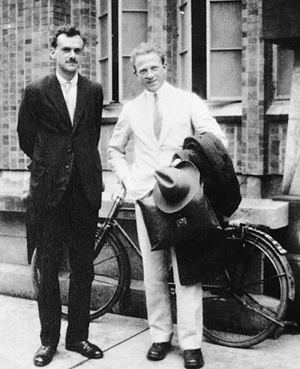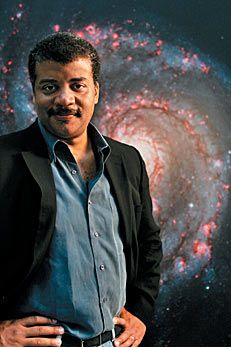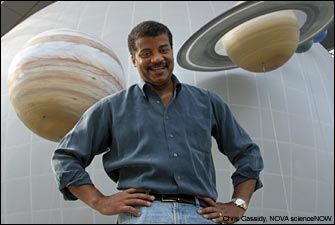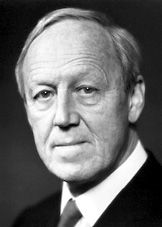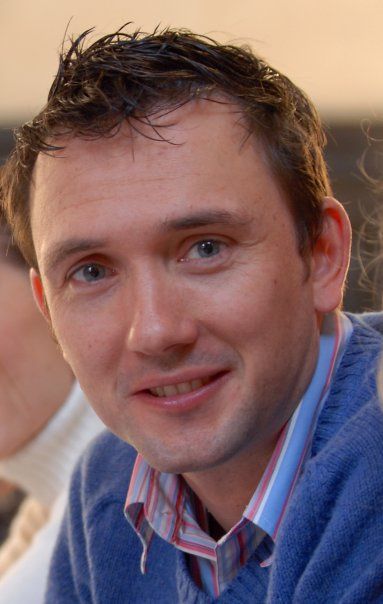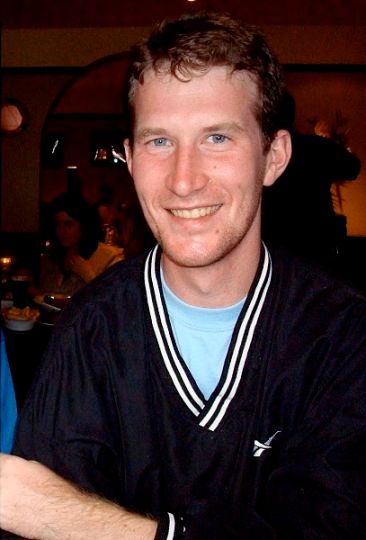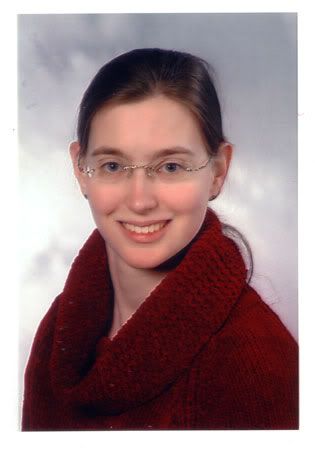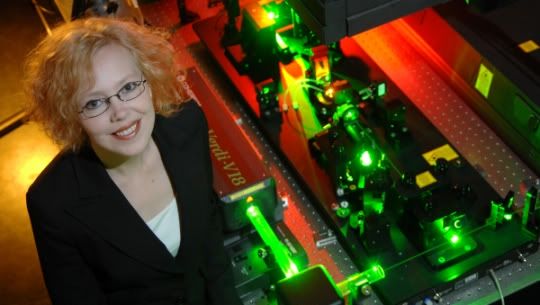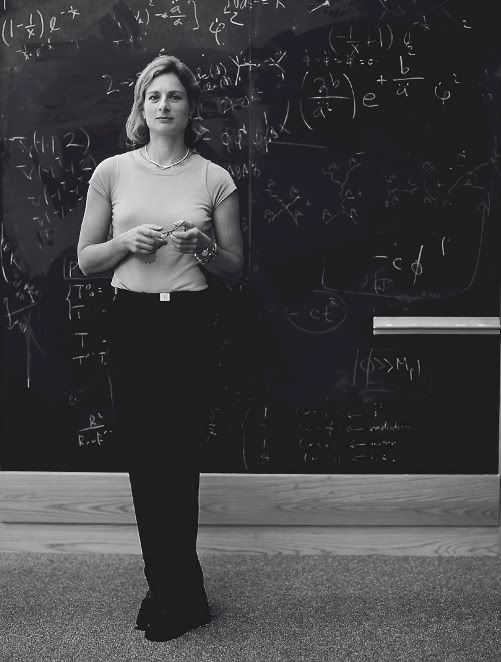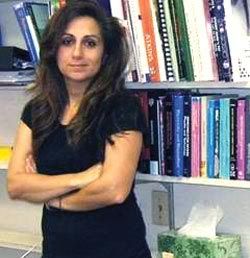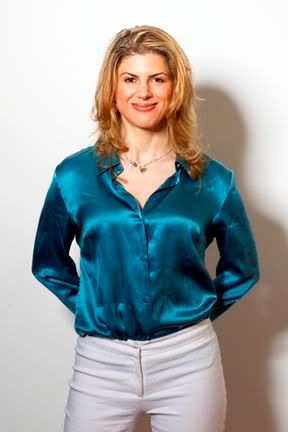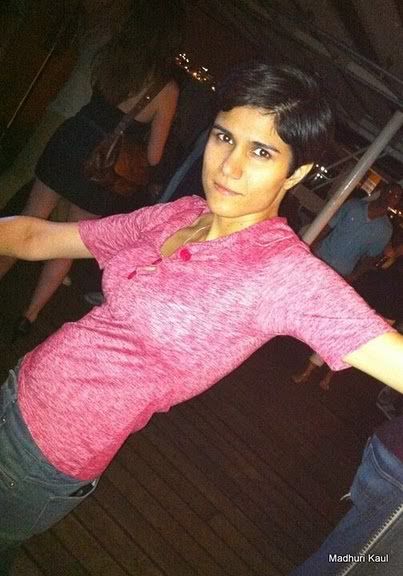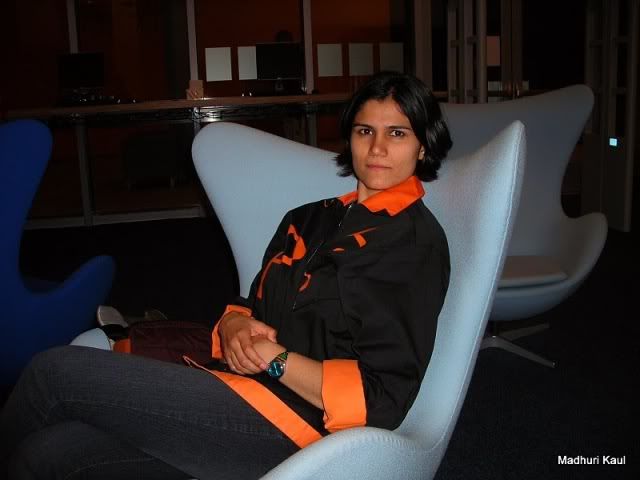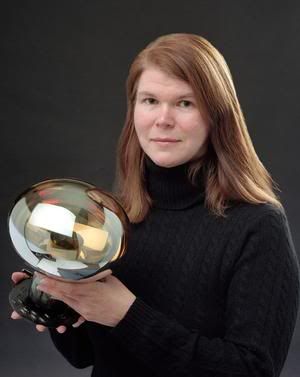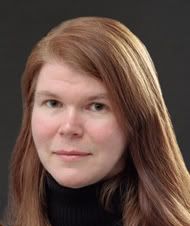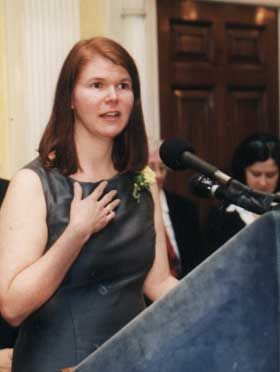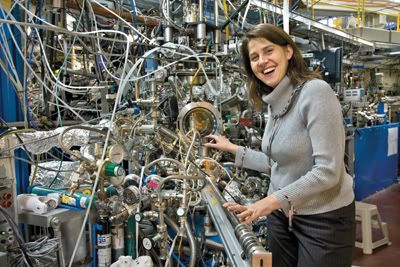By this time last week, I was already getting hate mail and comments about the poll I created (using nominations that you submitted) to find the most attractive female physicist. I think that controversy also generated a lot of interest in the poll.
Yet, this week, there's barely a squeak when the same poll is done by male physicist. I don't hear people criticizing me for "objectifying" these people, and that this poll is wrong. Or maybe those have already been said in the women's poll and no one wants to repeat those here? As men, should we find it offensive that no one finds this poll offensive? :)
Whatever the case is, as a scientist, I find it fascinating and curious of the different nature of reaction. By all accounts, the men's poll is downright boring. Is it because as men, we really don't care if someone likes us not for our brains, but for our looks? Is it because we really don't have time to be bothered by something as trivial as this and that means nothing in the long run? Or is it because we really never had to struggle, like the women, to be seriously accepted for our accomplishments rather than our looks? I think that, more than anything, it is a case of self-reflectance on how we view and treat men and women who are in the same profession and having the same stature, but with varying numbers. One encounters significantly more men than women in physics.
Whatever the reason may be, I will say that I'm completely not surprised by the nature of the reaction. I anticipated being reamed for the women's poll (which was why I ran it first), and not creating a stir with the men's poll. But I did it anyway. :)
And speaking of the female physicist poll, by a huge margin, you voted for Amy Mainzer.
Zz.
Thursday, September 30, 2010
Wednesday, September 29, 2010
The Feynman Variation
The BBC's "Discovery" radio show this time has Brian Cox paying tribute to Richard Feynman, who, by the way, happens to be leading the current poll of the most attractive male physicist. Brian Cox is trailing him far behind.
Zz.
Zz.
Tuesday, September 28, 2010
Possible Observation of Hawking Radiation In A Lab?
{Don't miss casting your vote for the Most Attractive Male Physicist!}
This is rather fascinating, and certainly important if it is valid.
Using just an optical system, a group is reporting an observation of a Hawking radiation-like radiation.
Amazing what you can accomplish in a lab, isn't it? :)
Zz.
This is rather fascinating, and certainly important if it is valid.
Using just an optical system, a group is reporting an observation of a Hawking radiation-like radiation.
To create the Hawking radiation, the scientists fired ultrashort (1-picosecond) laser pulses at transparent glass, which excited an RIP that exhibited an event horizon. Using a CCD camera, the researchers detected a peculiar kind of photon emission at a 90-degree angle to the glass. As the researchers explained, they arranged the experiment in a way to strongly suppress or eliminate other types of radiation, such as Cerenkov-like radiation, four wave mixing, self-phase modulation, Rayleigh scattering, and fluorescence.
Amazing what you can accomplish in a lab, isn't it? :)
Zz.
Monday, September 27, 2010
Frank Oppenheimer
Here's an interesting overview of a physicist that many of us don't know about. While Robert Oppenheimer is a well-known name, his younger brother, Frank Oppenheimer, has often been overlooked. So to me, I find it rather fascinating that someone decided to take a closer look at this physicist and what he has done.
It's always out of curiosity that I read biographies of physicists that I don't know of. Often, there are a few surprises in which I would realize that this person, who was unknown to me, actually has done something quite remarkable and important. In other words, this is person that one should know because if his or her important contribution. Unfortunately, I don't get that with reading this short blurb on Frank Oppenheimer. Sure, he worked with his brother on the Manhattan Project. We don't quite get exactly what his contributions were. But other than that, there's nothing significant about his story that convey the idea that this person has done something that I would consider to be significant. His "eccentricity" or creativity seems to be the main story here of what possibly be a good-enough reason to review his life history, which is fine if that's the purpose. However, after reading Dirac's biography, it is hard to top that in the eccentricity scale.
Zz.
As a teenager, Frank would devour letters Robert sent home from college at Harvard and, later, graduate school in Europe. They were full of news and gossip of the big characters of early 20th century physics, people such as Werner Heisenberg, Paul Dirac and JJ Thomson. Inspired, Frank decided to follow his brother into physics. After graduating from Johns Hopkins in 1933, Frank spent some time at labs in Cambridge and Florence, before moving to the California Institute for Technology for a PhD on artificially induced radiation.
It's always out of curiosity that I read biographies of physicists that I don't know of. Often, there are a few surprises in which I would realize that this person, who was unknown to me, actually has done something quite remarkable and important. In other words, this is person that one should know because if his or her important contribution. Unfortunately, I don't get that with reading this short blurb on Frank Oppenheimer. Sure, he worked with his brother on the Manhattan Project. We don't quite get exactly what his contributions were. But other than that, there's nothing significant about his story that convey the idea that this person has done something that I would consider to be significant. His "eccentricity" or creativity seems to be the main story here of what possibly be a good-enough reason to review his life history, which is fine if that's the purpose. However, after reading Dirac's biography, it is hard to top that in the eccentricity scale.
Zz.
Sunday, September 26, 2010
VOTE Most Attractive Male Physicist
OK, we had quite a bit of commotion and "fun" with our poll on the Most Attractive Female Physicist. Now comes the men. I hope that it will be as equally "offensive" to some people that we are simply objectifying these people for their looks and nothing else! :)
The nominees here were based on the names submitted during the nomination period by you. I've used the pictures from the links submitted, and in cases where there were no links, I tried to find pictures available off the web. As before, please contact me if any of the pictures are copyrighted and you want it removed.
Unlike the women's poll, the ethnic range of the nominees are rather limited. Oh well, this is what we get. So cast your vote, and don't stuff the ballot! It means that please try to cast your vote only ONCE even though there is no way for me to check.
Without further delay, here are the men, in no particular order!
1. Jacob Linder
2. Markus Aspelmeyer
3. Isaac Newton
4. Werner Heisenberg
5. Wernher von Braun
6. Richard Feynman
7. Jim Gimzewski
11. Brian Cox
The nominees here were based on the names submitted during the nomination period by you. I've used the pictures from the links submitted, and in cases where there were no links, I tried to find pictures available off the web. As before, please contact me if any of the pictures are copyrighted and you want it removed.
Unlike the women's poll, the ethnic range of the nominees are rather limited. Oh well, this is what we get. So cast your vote, and don't stuff the ballot! It means that please try to cast your vote only ONCE even though there is no way for me to check.
Without further delay, here are the men, in no particular order!
1. Jacob Linder
2. Markus Aspelmeyer
3. Isaac Newton
4. Werner Heisenberg
5. Wernher von Braun
6. Richard Feynman
7. Jim Gimzewski
8. Jonas Braasch
9. Robert Oppenheimer
10 Paul Dirac
11. Brian Cox
12. Mark Jackson
13. Neil deGrasse Tyson
14. Hannes Alfven
15 Ard Louis
16 Henry Kendall
17 Zachary Keanne
Zz.
Saturday, September 25, 2010
Another Physics Nobel Laureate Joins The Obama Administration
Nobel Laureate Carl Wieman will be joining the Obama Administration as the Associate Director of Science in the White House Office of Science and Technology.
One may not like the issues and the politics that these appointees may have, but there is very little doubt that many of the science appointees are extremely knowledgeable and know the subject area that they are hired for.
Zz.
One may not like the issues and the politics that these appointees may have, but there is very little doubt that many of the science appointees are extremely knowledgeable and know the subject area that they are hired for.
Zz.
Final Day To Cast Your Vote
This is the final day to cast your vote for the Most Attractive Female Physicist. After this, the men will be next. Let's see if they will garner their own controversies as the women did.
Zz.
Zz.
Friday, September 24, 2010
Testing General Relativity On Earth
Hey, remember way back in 2008 when I highlighted a paper that makes a more stringent time-keeping device using optical transition of ions? One of the important implication of that paper that I quote was that the time resolution is now good enough that one could start to see effects of GR by just by changing in altitude by 1 cm!
Well, such a challenge seldom go untested. The same NIST group that made that time-keeping advancement has now reported a test of GR using such a device (like open for free only for a limited time)[1]
Zz.
[1] C.W. Chou et al., Science v.329, p.1630 (2010).
Well, such a challenge seldom go untested. The same NIST group that made that time-keeping advancement has now reported a test of GR using such a device (like open for free only for a limited time)[1]
General relativity states that time speeds up for objects as gravity weakens. To demonstrate this, Chou and his colleagues raised one optical clock 33 centimetres above another. The slightly lower gravity at that height meant that compared with the reference clock, the raised clock ticked with a fractional boost in frequency of 4 × 10–17, equivalent to a gain of 90 billionths of a second over 79 years.
To demonstrate special relativity, which says that time slows down for moving objects, the researchers jolted the single atom in their optical clock so that it oscillated at relative speeds of less than 10 metres per second, or 36 kilometres per hour. This time, the clock's ticks seemed to drop by a fractional frequency of almost 6 × 10–16.Amazing work!
Zz.
[1] C.W. Chou et al., Science v.329, p.1630 (2010).
Wednesday, September 22, 2010
Quantum Quackery
I have written so many blog entry on such quantum quakery, I don't think my fingers can take it anymore. Luckily, this time, Lawrence Krauss tackles this issue by bring to task several quackeries that uses quantum mechanics in vain. For example, the frequent abuse of quantum entanglement gets directly addressed in this question/answer:
You'll notice that some of the things that Krauss talks about has a ring of familiarity if you have read my blog entry on why quantum mechanics is so difficult for the general public, and why it is susceptible to being abused.
One would hope that people would read this article and stop being taken in by all of these quackeries. Would Oprah invite Krauss to clarify all the misinformation that she helped spread when she touted "The Secret" on her show? I highly doubt it.
Zz.
Q: But isn't everything really connected? Doesn't the quantum world pervade everything that we see around us?
A: Of course it does. So does classical physics. The quantum world does pervade everything around us, but as Richard Feynman liked to say, "Scientific creativity is imagination in a straitjacket." Not everything is possible. That's what makes the world so interesting. It is true that quantum mechanics is extremely strange, and on extremely small scales for short times, all sorts of weird things happen. And in fact we can make weird quantum phenomena happen. But what quantum mechanics doesn't change about the universe is, if you want to change things, you still have to do something. You can't change the world by thinking about it.
We are connected to the world by many things: by light and sound and heat. We do, at subatomic scale, behave quantum mechanically. But we behave like classical objects for a reason: We're big, we have lots of particles, they interact. All the weirdness of quantum mechanics gets washed out on the scale that we can experience. That's why we experience a classical world.
The weirdness of quantum mechanics is reserved for either very specially prepared configurations in the laboratory, or scales that are so small that quantum-mechanical effects are significant.
We're also connected to the universe by gravity, and we're connected to the planets by gravity. But that doesn't mean that astrology is true. With quantum mechanics, there's a notion that observers affect the things that they're observing. That's not always true, but it's often true. That's one of the very strange properties of quantum mechanics. Therefore people get the notion that there's no objective reality, and that you can literally impact on the external world just by doing things internally. That's not the case. If you want to affect something in the external world, you have to do something to it. You can't just hope for the best. You can't bring good things to you by thinking about them.
The quantum mechanical correlations, the spooky action at a distance that quantum mechanics brings up, is true only for very specially prepared systems that are isolated from the rest of the world, completely. And we are certainly not isolated from the rest of the world. We're bombarded by many things every second of the day, and a result, we're not specially prepared quantum mechanical systems, nor can we exert weird quantum powers over other objects.
You'll notice that some of the things that Krauss talks about has a ring of familiarity if you have read my blog entry on why quantum mechanics is so difficult for the general public, and why it is susceptible to being abused.
One would hope that people would read this article and stop being taken in by all of these quackeries. Would Oprah invite Krauss to clarify all the misinformation that she helped spread when she touted "The Secret" on her show? I highly doubt it.
Zz.
Tuesday, September 21, 2010
"Find Your Inner Scientist"
That's what Lawrence Krauss told students at a Graduate Student conference.
As graduate students, we are almost "programmed" to keep our focus on doing our research work. Most of the time, we just don't have the time nor the inclination to figure out society's odd behavior. So having issues like this being presented to these students now and then would serve as a wake-up call, and give then a dose of reality of what they will be facing when they graduate. It isn't just about the science, especially when the public has been shown to not care about facts in many instances.
Zz.
"We have to be diligent. There are many forces in society working on behalf of ignorance," Krauss said.
He also hoped that attendees would find their inner scientist. Part of his goal was to raise awareness of the issues and provide people with the tools to counter non-science in their own discussions.
As graduate students, we are almost "programmed" to keep our focus on doing our research work. Most of the time, we just don't have the time nor the inclination to figure out society's odd behavior. So having issues like this being presented to these students now and then would serve as a wake-up call, and give then a dose of reality of what they will be facing when they graduate. It isn't just about the science, especially when the public has been shown to not care about facts in many instances.
Zz.
Monday, September 20, 2010
The Physics of Cheating in Baseball
{Don't miss casting your vote for the most attractive female physicist}
No, this is not about steroid use, which we've already looked into. This manuscript is more on the mechanical/material aspect of cheating in baseball, namely (i) the use of corked bats, (ii) is the ball livelier than before, and (iii) would storing the ball in a controlled environment makes a difference.
Abstract: Three separate questions of relevance to Major League Baseball are investigated from a physics perspective. First, can a baseball be hit farther with a corked bat? Second, is there evidence that the baseball is more lively today than in earlier years? Third, can storing baseballs in a temperature- or humidity-controlled environment significantly affect home run production? Each of these questions is subjected to a physics analysis, including an experiment, an interpretation of the data, and a definitive answer. The answers to the three questions are no, no, and yes.
Rather interesting reading.
Zz.
No, this is not about steroid use, which we've already looked into. This manuscript is more on the mechanical/material aspect of cheating in baseball, namely (i) the use of corked bats, (ii) is the ball livelier than before, and (iii) would storing the ball in a controlled environment makes a difference.
Abstract: Three separate questions of relevance to Major League Baseball are investigated from a physics perspective. First, can a baseball be hit farther with a corked bat? Second, is there evidence that the baseball is more lively today than in earlier years? Third, can storing baseballs in a temperature- or humidity-controlled environment significantly affect home run production? Each of these questions is subjected to a physics analysis, including an experiment, an interpretation of the data, and a definitive answer. The answers to the three questions are no, no, and yes.
Rather interesting reading.
Zz.
Sunday, September 19, 2010
Field Guide To Subatomic Particle
{Don't miss casting your vote for the most attractive female physicist}
This looks to be a rather useful guide to newbies on subatomic particles. In a handwaving way, it gives you the necessary simple picture of elementary particles.
Zz.
This looks to be a rather useful guide to newbies on subatomic particles. In a handwaving way, it gives you the necessary simple picture of elementary particles.
Zz.
Saturday, September 18, 2010
VOTE For The Most Attractive Female Physicist
OK, let's see how this goes.
We will start with the ladies first. I've decided to include ALL the submitted nominees in the poll. You have only ONE vote, and you have until the end of Sept. 26 to cast your vote.
{EDIT: To all those who are "offended" by this poll, stay tuned, because you will be, hopefully, equally offended when the poll for the most attractive male physicist comes up after this one is done. If you didn't follow this from the beginning and noticed that I call this exercise shallow and superficial, then I have nothing else to say.}
This is not going to be easy. We have 13 nominations, and I have to say, you people did GOOD! The nominees span a wide range of ethnic and racial profile, for women who have a tougher time in this field, it is heartening to see so many. I had to admit that I had a bit of an apprehension that we won't be getting many women nominations, but you proved me wrong. Well done!
To help with your voting, here are pictures that were either submitted, or what I could find on the web/public domain. You are welcome to do your own search to supplement the pictures here. IF ANY OF THESE PICTURES ARE COPYRIGHTED AND YOU WOULD LIKE IT TO BE REMOVED, PLEASE CONTACT ME or leave a comment. Please use the voting app in the side bar of this blog.
In no particular order, the nominees for the most attractive female physicist are:
1. Elisabeth Rieper
2. Anna Wilson
3. Amy Mainzer
4. Maria Goeppert Mayer
5. Kimberley Hall
6. Lisa Randall
7. Firouzeh Sabri
8. Deborah Berebichez
Edit: Ms. Berebichez contacted me to remove a copyrighted picture, but has graciously sent me 3 more to replace that one. I hope some of you are not regretting that you didn't cast your vote for her now.
9. Madhuri Kaul
10 Janet Conrad
11. Kim-Vy Tran
12. Sarah Kavassalis
13. Allesandra Lanzara
These are all very attractive women. They are all winners in my book.
Zz.
We will start with the ladies first. I've decided to include ALL the submitted nominees in the poll. You have only ONE vote, and you have until the end of Sept. 26 to cast your vote.
{EDIT: To all those who are "offended" by this poll, stay tuned, because you will be, hopefully, equally offended when the poll for the most attractive male physicist comes up after this one is done. If you didn't follow this from the beginning and noticed that I call this exercise shallow and superficial, then I have nothing else to say.}
This is not going to be easy. We have 13 nominations, and I have to say, you people did GOOD! The nominees span a wide range of ethnic and racial profile, for women who have a tougher time in this field, it is heartening to see so many. I had to admit that I had a bit of an apprehension that we won't be getting many women nominations, but you proved me wrong. Well done!
To help with your voting, here are pictures that were either submitted, or what I could find on the web/public domain. You are welcome to do your own search to supplement the pictures here. IF ANY OF THESE PICTURES ARE COPYRIGHTED AND YOU WOULD LIKE IT TO BE REMOVED, PLEASE CONTACT ME or leave a comment. Please use the voting app in the side bar of this blog.
In no particular order, the nominees for the most attractive female physicist are:
1. Elisabeth Rieper
2. Anna Wilson
3. Amy Mainzer
4. Maria Goeppert Mayer
5. Kimberley Hall
6. Lisa Randall
7. Firouzeh Sabri
8. Deborah Berebichez
Edit: Ms. Berebichez contacted me to remove a copyrighted picture, but has graciously sent me 3 more to replace that one. I hope some of you are not regretting that you didn't cast your vote for her now.
9. Madhuri Kaul
10 Janet Conrad
11. Kim-Vy Tran
12. Sarah Kavassalis
13. Allesandra Lanzara
These are all very attractive women. They are all winners in my book.
Zz.
Subscribe to:
Comments (Atom)



